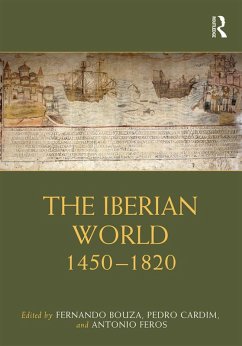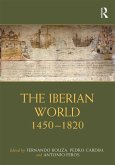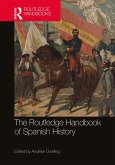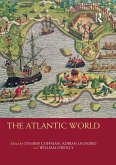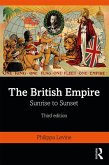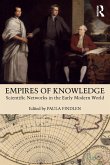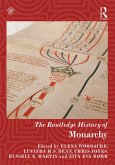The Iberian World (eBook, PDF)
1450-1820
Redaktion: Bouza, Fernando; Feros, Antonio; Cardim, Pedro
48,95 €
48,95 €
inkl. MwSt.
Sofort per Download lieferbar

24 °P sammeln
48,95 €
Als Download kaufen

48,95 €
inkl. MwSt.
Sofort per Download lieferbar

24 °P sammeln
Jetzt verschenken
Alle Infos zum eBook verschenken
48,95 €
inkl. MwSt.
Sofort per Download lieferbar
Alle Infos zum eBook verschenken

24 °P sammeln
The Iberian World (eBook, PDF)
1450-1820
Redaktion: Bouza, Fernando; Feros, Antonio; Cardim, Pedro
- Format: PDF
- Merkliste
- Auf die Merkliste
- Bewerten Bewerten
- Teilen
- Produkt teilen
- Produkterinnerung
- Produkterinnerung

Bitte loggen Sie sich zunächst in Ihr Kundenkonto ein oder registrieren Sie sich bei
bücher.de, um das eBook-Abo tolino select nutzen zu können.
Hier können Sie sich einloggen
Hier können Sie sich einloggen
Sie sind bereits eingeloggt. Klicken Sie auf 2. tolino select Abo, um fortzufahren.

Bitte loggen Sie sich zunächst in Ihr Kundenkonto ein oder registrieren Sie sich bei bücher.de, um das eBook-Abo tolino select nutzen zu können.
The Iberian World: 1450-1820 brings together, for the first time in English, the latest research in Iberian studies, providing in-depth analysis of fifteenth to early nineteenth century Portugal and Spain, their European possessions and the African, Asian, and American peoples that were under their rule.
- Geräte: PC
- mit Kopierschutz
- eBook Hilfe
Andere Kunden interessierten sich auch für
![The Iberian World (eBook, ePUB) The Iberian World (eBook, ePUB)]() The Iberian World (eBook, ePUB)48,95 €
The Iberian World (eBook, ePUB)48,95 €![The Routledge Handbook of Spanish History (eBook, PDF) The Routledge Handbook of Spanish History (eBook, PDF)]() The Routledge Handbook of Spanish History (eBook, PDF)45,95 €
The Routledge Handbook of Spanish History (eBook, PDF)45,95 €![The Atlantic World (eBook, PDF) The Atlantic World (eBook, PDF)]() The Atlantic World (eBook, PDF)50,95 €
The Atlantic World (eBook, PDF)50,95 €![The British Empire (eBook, PDF) The British Empire (eBook, PDF)]() Philippa LevineThe British Empire (eBook, PDF)42,95 €
Philippa LevineThe British Empire (eBook, PDF)42,95 €![The Routledge History of Western Empires (eBook, PDF) The Routledge History of Western Empires (eBook, PDF)]() The Routledge History of Western Empires (eBook, PDF)50,95 €
The Routledge History of Western Empires (eBook, PDF)50,95 €![Empires of Knowledge (eBook, PDF) Empires of Knowledge (eBook, PDF)]() Empires of Knowledge (eBook, PDF)41,95 €
Empires of Knowledge (eBook, PDF)41,95 €![The Routledge History of Monarchy (eBook, PDF) The Routledge History of Monarchy (eBook, PDF)]() The Routledge History of Monarchy (eBook, PDF)48,95 €
The Routledge History of Monarchy (eBook, PDF)48,95 €-
-
-
The Iberian World: 1450-1820 brings together, for the first time in English, the latest research in Iberian studies, providing in-depth analysis of fifteenth to early nineteenth century Portugal and Spain, their European possessions and the African, Asian, and American peoples that were under their rule.
Dieser Download kann aus rechtlichen Gründen nur mit Rechnungsadresse in A, B, BG, CY, CZ, D, DK, EW, E, FIN, F, GR, HR, H, IRL, I, LT, L, LR, M, NL, PL, P, R, S, SLO, SK ausgeliefert werden.
Produktdetails
- Produktdetails
- Verlag: Taylor & Francis eBooks
- Seitenzahl: 736
- Erscheinungstermin: 9. September 2019
- Englisch
- ISBN-13: 9781000527476
- Artikelnr.: 58131169
- Verlag: Taylor & Francis eBooks
- Seitenzahl: 736
- Erscheinungstermin: 9. September 2019
- Englisch
- ISBN-13: 9781000527476
- Artikelnr.: 58131169
- Herstellerkennzeichnung Die Herstellerinformationen sind derzeit nicht verfügbar.
Fernando Bouza is Professor at the Universidad Complutense de Madrid, and a specialist in early modern Iberian culture and politics. He is the author of Portugal no tempo dos Filipes. Política, cultura, representações (1580-1668) (2000); Communication, Knowledge, and Memory in Early Modern Spain (2004); and Hétérographies. Formes de l¿écrit au Siècle d¿Or espagnol (2010). Pedro Cardim is Associate Professor of early modern history at the Universidade NOVA de Lisboa, and the author of Portugal unido y separado. Felipe II, la unión de territorios y la condición política del reino de Portugal (2014); and Portugal y la Monarquía Hispánica (ca. 1550-ca. 1715) (2017). Antonio Feros is Rose Family Endowed Term Professor of History at the University of Pennsylvania, and the author of numerous publications on early modern Spanish history. He recently published a book entitled Speaking of Spain. The Evolution of Race and Nation in the Hispanic World (2017).
Introduction. Part 1: THE IBERIAN PENINSULA (FIFTEENTH-SEVENTEENTH CENTURY) 1 The shaping of the Iberian polities in the late fifteenth and early sixteenth centuries. 2 The political constitution of the Iberian monarchies. 3 The Iberian polities within Europe: politics and state building. 4 Religious identities in the Iberian worlds (1500-1700). 5 Iberia, North Africa, and the Mediterranean. 6 The union between Portugal and the Spanish monarchy (1581- 1640). 7 Iberian society. 8 Women and gender: structures and roles (1400-1820). 9 The peninsular economies and the impact of globalisation (ca. 1494-1700). 10 Cultures and communication across the Iberian world (fifteenth-seventeenth centuries). 11 Religious conversion and identities in the Iberian peninsula. 12 Black Africans in the Iberian peninsula (1400-1820). Part 2: EXPANSION AND EMPIRES (FIFTEENTH-SEVENTEENTH CENTURY) 13 Iberian explorations: the construction of global empires (1450-1650). 14 Administration and government of the Iberian empires. 15 Patterns of conquest and settlement of the Iberian Americas. 16 Asians in the Iberian world. Tatiana Seijas and Ângela Barreto Xavier 17 Amerindians in the Iberian world. 18 Portugal, Spain, and the transatlantic slave trade. 19 Colonial societies in Asia. 20 Europeans, Indians, and Africans in the making of colonial societies. 21 Imperial economies. 22 Artistic experiences in the Iberian world, sixteenth-seventeenth centuries. Part 3: THE EIGHTEENTH-CENTURY IBERIAN WORLD 23 Enlightened politics in Portugal and Spain. 24 Enlightened reformism in Iberian culture and science. 25 Imperial competition in the eighteenth-century Americas. 26 Reform in Spanish and Portuguese America. 27 Social change in the eighteenth-century Iberian world. 28 New imperial economies. Part 4: THE IBERIAN WORLD IN THE AGE OF REVOLUTIONS 29 Protest and resistance against colonial rule in Iberian America. 30 War and revolution in the Iberian Atlantic. 31 Portugal and Spain under the newly established liberal regimes. 32 Independence in Iberian America.
Introduction. Part 1: THE IBERIAN PENINSULA (FIFTEENTH-SEVENTEENTH CENTURY) 1 The shaping of the Iberian polities in the late fifteenth and early sixteenth centuries. 2 The political constitution of the Iberian monarchies. 3 The Iberian polities within Europe: politics and state building. 4 Religious identities in the Iberian worlds (1500-1700). 5 Iberia, North Africa, and the Mediterranean. 6 The union between Portugal and the Spanish monarchy (1581- 1640). 7 Iberian society. 8 Women and gender: structures and roles (1400-1820). 9 The peninsular economies and the impact of globalisation (ca. 1494-1700). 10 Cultures and communication across the Iberian world (fifteenth-seventeenth centuries). 11 Religious conversion and identities in the Iberian peninsula. 12 Black Africans in the Iberian peninsula (1400-1820). Part 2: EXPANSION AND EMPIRES (FIFTEENTH-SEVENTEENTH CENTURY) 13 Iberian explorations: the construction of global empires (1450-1650). 14 Administration and government of the Iberian empires. 15 Patterns of conquest and settlement of the Iberian Americas. 16 Asians in the Iberian world. Tatiana Seijas and Ângela Barreto Xavier 17 Amerindians in the Iberian world. 18 Portugal, Spain, and the transatlantic slave trade. 19 Colonial societies in Asia. 20 Europeans, Indians, and Africans in the making of colonial societies. 21 Imperial economies. 22 Artistic experiences in the Iberian world, sixteenth-seventeenth centuries. Part 3: THE EIGHTEENTH-CENTURY IBERIAN WORLD 23 Enlightened politics in Portugal and Spain. 24 Enlightened reformism in Iberian culture and science. 25 Imperial competition in the eighteenth-century Americas. 26 Reform in Spanish and Portuguese America. 27 Social change in the eighteenth-century Iberian world. 28 New imperial economies. Part 4: THE IBERIAN WORLD IN THE AGE OF REVOLUTIONS 29 Protest and resistance against colonial rule in Iberian America. 30 War and revolution in the Iberian Atlantic. 31 Portugal and Spain under the newly established liberal regimes. 32 Independence in Iberian America.
